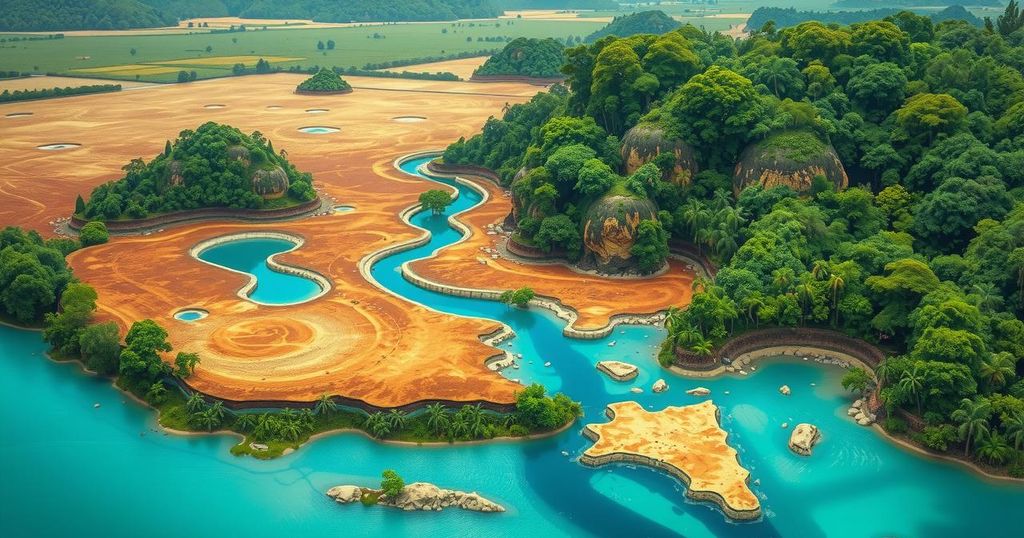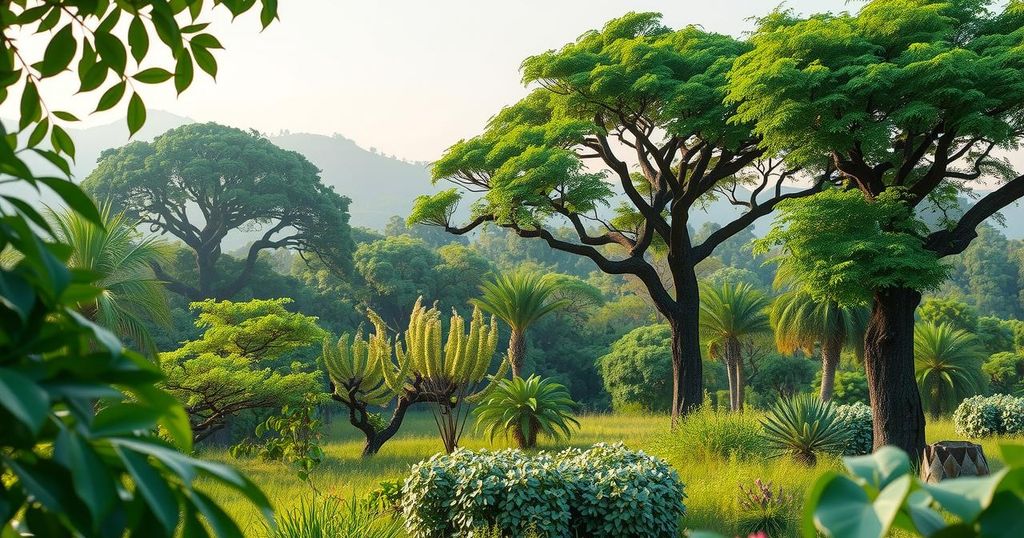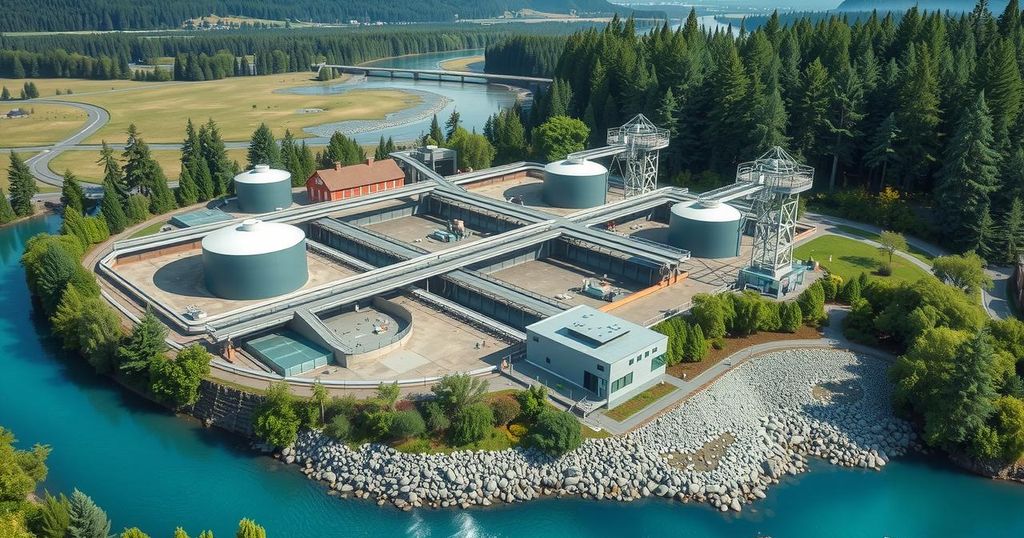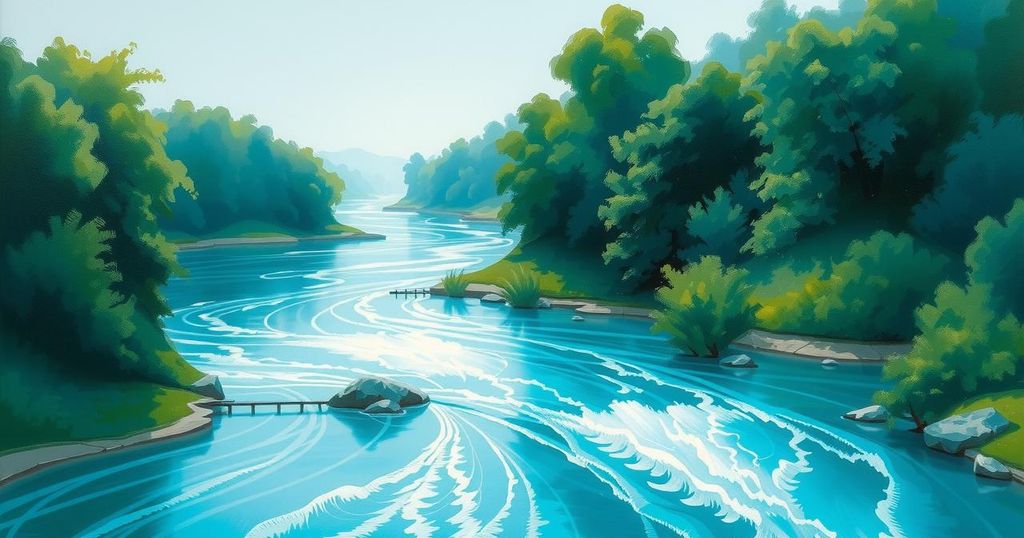Brazil has lost significant natural surface water due to climate change and land use, with 400,000 hectares lost from 2023 to last year. Over 16 years, only one year saw a gain, with losses totaling 2.4 million hectares since 1985. The Amazon, home to much of Brazil’s fresh water, is a critical area affected, necessitating urgent water management strategies.
Brazil, which holds 12 percent of the world’s freshwater reserves, particularly in the Amazon, is experiencing a significant decline in natural surface water due to climate change and land conversion. A report indicates that from 2022 to 2023, the country lost approximately 400,000 hectares of aquatic surface water, equating to an area comparable to the state of Rhode Island.
Since 1985, Brazil has experienced a loss of around 2.4 million hectares of rivers and lakes due to factors such as drought, urban development, and over-extraction of aquifers. Alarmingly, only in 2022 was there an observed increase in water surface, underscoring the ongoing crisis. “The dynamics of land occupation and use, along with extreme climate events caused by global warming, are making Brazil drier,” stated Juliano Schirmbeck, coordinator of the MapBiomas Agua report, which was released prior to World Water Day.
The findings emphasize the urgent need for adaptive water management strategies and public policies to reverse the negative trends in Brazil’s water supply. The nation is set to host the COP30 UN climate conference in November, highlighting its critical role in global climate discussions. The Amazon basin, where nearly two-thirds of Brazil’s surface water is located, significantly contributes to climate regulation by absorbing carbon dioxide.
Last year, the Amazon’s surface water area decreased by approximately 4.5 million hectares, an expanse equal to the size of Denmark. Furthermore, the Pantanal wetlands suffered the most, with water surface levels in 2024 falling by 61 percent compared to the average since 1985. Although human-made water bodies such as reservoirs and dams have increased by 54 percent since 1985, they have failed to offset the loss of natural freshwater resources.
The report highlights the critical challenges Brazil faces regarding its freshwater supply as a result of climate change and human activities. Urgent measures for adaptive water management and effective public policy are necessary to mitigate these impacts. The findings serve as a crucial reminder of the importance of natural water systems in maintaining ecological balance and addressing climate change. Brazil’s role in the upcoming COP30 conference could be pivotal in global environmental discussions.
Original Source: www.ndtv.com




